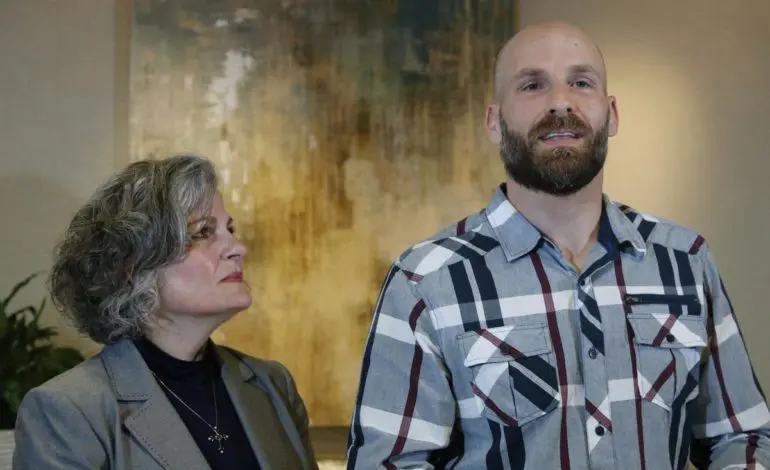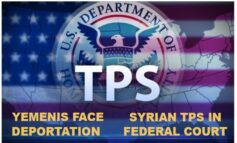Oklahoma – President Trump pardoned former U.S. Army Lieutenant Michael Behenna on Monday after he served five years in prison for killing an Iraqi soldier in 2008.
Behenna was convicted of unpremeditated murder and sentenced to 25 years in prison for the killing of Ali Mansour Mohamed. Mansour had been suspected for his involvement in a roadside bombing that killed two members of Behenna’s platoon.
According to Reuters, Behenna was tasked to transport Mohamed back to his village after military intelligence questioned Mohamed and released him due to insufficient evidence.
Behenna told military court that while in transport, he stopped the convoy and decided to question Mohamed alone. Mohamed was stripped and then shot twice when, according to Behenna, he reached for his weapon.
After filing for a mistrial and claiming that the prosecution had hid exculpatory evidence, he appealed to higher courts and eventually had his sentence reduced to 15 years.
Behenna was released for parole in 2014. His family, who have deep ties to law enforcement, petitioned for both his parole and his eventual pardon.
Numerous politicians from Behenna’s home state, including Gov. Mary Fallin, state Attorney General Mike Hunter and members of Congress pushed Trump to pardon the former soldier.
A statement from the White House press secretary regarding executive clemency for Behenna said that U.S. Army’s highest appellate court had noted concerns over the handling of his self-defense claim.
“Mr. Behenna’s case has attracted broad support from the military, Oklahoma elected officials, and the public,” the statement said. “Thirty-seven generals and admirals, along with a former Inspector General of the Department of Defense, signed a brief in support of Mr. Behenna’s self-defense claim.”
The ACLU slammed Trump’s decision to pardon Behenna. In a statement to U.S. media, Hina Shamsi, director of the ACLU’s National Security Project, said that the pardon was an endorsement of murder.
“Trump, as commander-in-chief, and top military leaders should prevent war crimes, not endorse or excuse them,” she said.






Leave a Reply